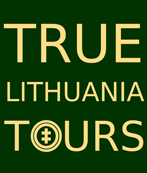Politics in Lithuania: Introduction
Lithuania is a democratic country since 1990. Its directly elected president may be its best known and most popular politician, but the real power is vested in Seimas (parliament) and the government. Lithuania is a unitary country, its municipalities controlling only minor local affairs.
Ideologically Lithuania is divided along several lines: leftist vs. rightist economic viewpoints; pro-Western vs. pro-Local vs. pro-Eastern value systems; authoritarian vs. libertarian opinions about personal freedoms. Moreover, a significant part of locals proudly lacks an opinion on these matters and claims to be "apolitical".
Lithuanian political parties range from "ideological" ones contesting every election (the Homeland Union, Socialdemocrats, Liberals) to sometimes ephemeral "personal" ones created, merged and folded at will by famous star politicians whose names become eponymous to such parties.
Lithuanian foreign policy aims to integrate with Western Europe into a tight European Union and keep friendly relations with USA (the "leader of NATO"). Much of this is to repulse Russia, seen as a threat because of the occupations and Genocide it perpetrated. Lithuania also seeks to consolidate Central and Eastern Europe, help the region (and itself) become completely independent of Russia and more Western-oriented. Lithuanian military is aimed to help Western allies in their battles elsewhere to secure their help should Lithuania be attacked.
Lithuanian law is largely modeled after that of continental Central Europe, although it differs on some key matters.
The tax system in Lithuania is characterized by a relatively high tax burden, especially labor taxes.



Leave a comment